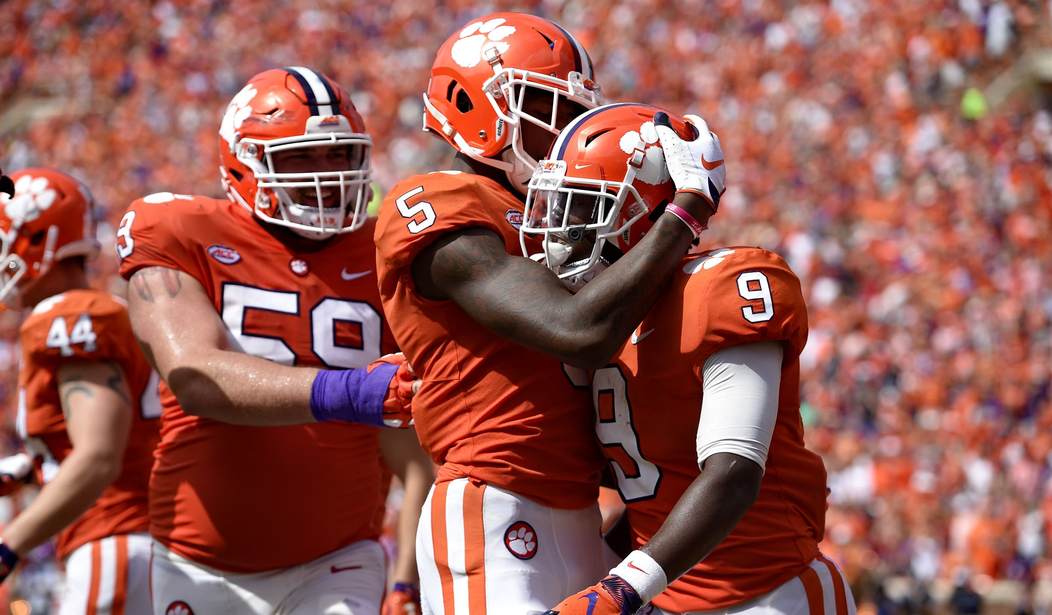There's been an unprecedented movement by college-age kids away from Ivy League and other so-called elite schools toward schools in the South.
It's no mystery. Several factors are at play in this migration, including a greater sense of freedom, great college sports teams, and warmer weather. The pandemic hastened the migration as southern schools had relaxed strict COVID restrictions long before the eastern schools got around to it.
The Free Press reports, "Both Brown and Harvard saw dips in their application numbers this year—by 5 percent and 3 percent, respectively. (Early decisions to Harvard were down 17 percent.) And while applications to private colleges in mid-Atlantic (25.3 percent) and New England (29 percent) states have risen since 2019, the gains have been small compared to Southern colleges, which saw a 42 percent increase overall."
Admittedly, a drop in applications is not a reason for Harvard to panic. They get 50,000+ applications a year and are still one of the most selective universities in the country.
But as a straw in the wind, it's significant when taken with other factors.
Southern colleges are also seeing a surge in applicants from northern out-of-state students. In 2023, for example, about 19 percent of total enrollment at Clemson in South Carolina came from New York and New Jersey—a big change from 2017, when the top out-of-staters were from the Carolinas and Georgia. Almost half the undergraduates from University of Miami in Florida came from out of state in 2023, with students from New York, New Jersey, and Massachusetts taking three of the top five slots. Meanwhile, more than half of Elon University’s entire enrollment for 2023 hailed from northeastern states, with Massachusetts, New Jersey, and New York leading the charge.
“Never before have we seen so much interest in colleges like Clemson, Georgia Tech, and North Carolina State,” says Rick Clark, the assistant vice provost and executive director of undergraduate admission at Georgia Tech. “That’s just unprecedented," he added.
Related: NYPD Blames the Faculty and 'Outside Agitators' for NYU Unrest
“Kids up north were pretty unhappy during those Covid lockdown years,” said Larry Glazer from Boston, whose son Archie is looking at Elon University in North Carolina. “And colleges down south were offering something different. My son and his friends would look at TikTok and see all these college kids going to football games, throwing parties, living their lives. It has an impact.”
That impact is growing.
Julie Ketover, a mother of two in New Jersey and a Yale alumnus, was shocked when her daughter Alexa began looking at schools like South Carolina, Clemson, and Elon.
“She was looking at Clemson,” says Ketover, a former attorney turned life coach. “I was like, ‘Clemson? For a nice Jewish girl from New Jersey?’ ”
Alex is now a sophomore at the University of Miami and many of her friends from New Jersey are attending southern schools. “And these are some really smart kids,” says Ketover. “Their priorities are just different from ours.”
Are they really? Or do they just want the freedom to disagree with the dominant liberal ideology without being branded a "racist" or "homophobe"?
They also don’t have the same incentives to pick a school for its supposed “prestige.” As many students are beginning to realize, a marquee college name doesn’t always translate to greater success. A 2023 study by a Dartmouth business professor found that just 11.8 percent of Fortune 500 CEOs have an Ivy League education, and only 9.8 percent got their MBA from an Ivy League.
Harvard, Yale, Columbia, and the rest of the Ivy League have been floating along, dependent on a reputation that's more myth than reality. Why go to a stuffy school when you can live freely at Clemson or North Carolina State?










Join the conversation as a VIP Member